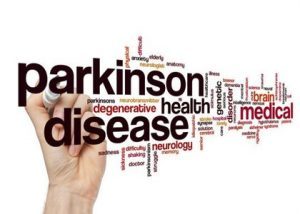- Home
- Editorial
- News
- Practice Guidelines
- Anesthesiology Guidelines
- Cancer Guidelines
- Cardiac Sciences Guidelines
- Critical Care Guidelines
- Dentistry Guidelines
- Dermatology Guidelines
- Diabetes and Endo Guidelines
- Diagnostics Guidelines
- ENT Guidelines
- Featured Practice Guidelines
- Gastroenterology Guidelines
- Geriatrics Guidelines
- Medicine Guidelines
- Nephrology Guidelines
- Neurosciences Guidelines
- Obs and Gynae Guidelines
- Ophthalmology Guidelines
- Orthopaedics Guidelines
- Paediatrics Guidelines
- Psychiatry Guidelines
- Pulmonology Guidelines
- Radiology Guidelines
- Surgery Guidelines
- Urology Guidelines
New revolutionary treatment for Parkinson's now available in India

A new revolutionary treatment modality for the treatment of Parkinson's namely Apomorphine PEN & PUMP has been launched in India for the first time. Bombay based Nanavati Super Speciality Hospital in collaboration with Parkinson's Center of Excellence, Kings has College, London has initiated this treatment and made it available for benefit of patients.
The apomorphine pump is a small and lightweight device that is no bigger than the average mobile phone which delivers a subcutaneous infusion of apomorphine, throughout the day to treat motor fluctuations ('ON-OFF' phenomena) in patients with Parkinson's disease, which are not sufficiently controlled by oral anti-Parkinson medication. It can be can be easily hidden under clothing by attaching it to the waistband of a patients’ trousers or skirt. The PEN & PUMP treatment is an effective alternative for those who do not want to undergo Deep brain stimulation (DBS).
Parkinson's disease is caused by dopamine deficiency which is a chemical neurotransmitter in the brain mainly in the centres controlling the mobility. It is characterized by slowness, stiffness, and tremors and its prevalence advances between the age of 70-79.
Apomorphine PEN & PUMP will be a new therapeutic option available in India which will radically change the life of a Parkinson's patient. The treatment was launched by the Health Minister of Maharashtra, Dr Deepak Sawant and Guest of Honour -Paresh Rawal, Actor and Member of Parliament.
Apomorphine is a highly selective dopamine receptor stimulator, which promotes the release of dopamine in the brain from the nerve cells, that is otherwise absent. Dr Rajendra Patankar, COO, Nanavati Super Speciality Hospital, speaking on the launch of the radical treatment of Parkison's says, "Apomorphine is a revolutionary breakthrough to treat the Parkinson's patients. Associating with the prestigious King's College, London, has been an honour for us. As a healthcare provider, we would like to commit ourselves to improve the healthcare in India and bring in such great advancements in the field of medicine to India."
According to Dr Neeta Shah, Consultant Parkinson's Disease and Movement Disorders Specialist, Nanavati Super Specialty Hospital, Mumbai, "To treat Parkinson's disease in the advanced stage is a challenge. Patient suffer from progression in symptoms and side effects of increasing dosages of standard medications. We need some novel way to treat this disease. This treatment will be a boon for such patients."
Advantages of new treatment modality-
- It delivers a predictable response and smooth control for Parkinson’s patients
- It bypasses the GI tract, providing a reliable onset of clinical effects and helps achieve smooth control of plasma drug levels.
- APO-go® PUMP avoids the peaks and troughs of pulsatile levodopa administration and can widen the therapeutic window [Pietz 1998, Kanovsky 2002]
- It provides dramatic and significant improvements in quality of life for patients.
- It provides patients with CDS therapy, without the need for invasive surgical intervention.
Movement Disorders Specialist from London, Dr Vinod Metta, leads one of the biggest set of patients on Apomorphine in the United Kingdom, speaks about the launch, "Apomorphine pens provide relief to the patients within a couple of minutes and the usage is similar to insulin pens."

Disclaimer: This site is primarily intended for healthcare professionals. Any content/information on this website does not replace the advice of medical and/or health professionals and should not be construed as medical/diagnostic advice/endorsement or prescription. Use of this site is subject to our terms of use, privacy policy, advertisement policy. © 2020 Minerva Medical Treatment Pvt Ltd